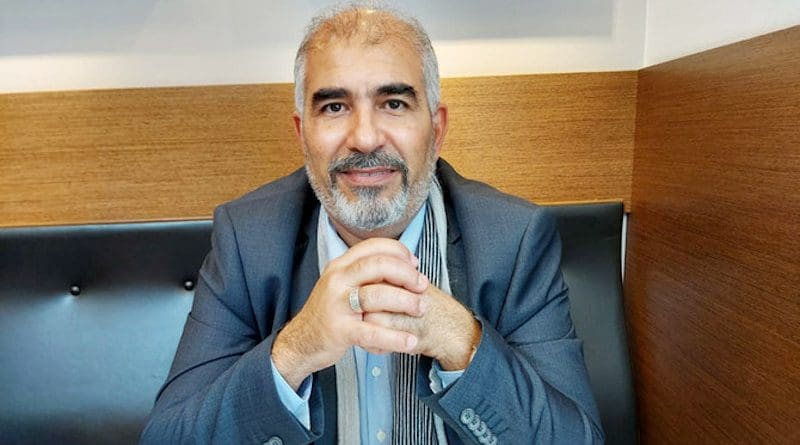Leader Of Baha’is In Yemen Complains Of ‘Systematic’ Houthi Repression
By Arab News
By Saeed Al-Batati
The leader of the Baha’i religious minority in Yemen has accused the Iran-backed Houthis of systematic repression against his group since seizing power in late 2014.
Hamed bin Haydara told Al-Sharea daily newspaper that Yemen’s Baha’is had undergone unprecedented, increasing levels of persecution over the last six years, when the Houthis arbitrarily detained dozens of the group’s followers, sentenced many to death and confiscated their assets.
“The Houthis are applying a policy of silent extermination of our cultural and social heritage. This is a type of systematic religious cleansing crime,” Bin Haydara said in a rare interview with the press.
The Houthis are applying the same radical ideologies that they learnt in Iran, which deems members of religious minorities heretics, the Baha’i leader claimed.
“There is no country in the world that has persecuted the Baha’is like Iran and the Houthis. There is a great similarity between persecution against us in Iran and Sanaa, as both use the same methods of persecution, rhetoric, rumors and lies against the Baha’is,” he said.
Bin Haydara said that he was snatched by security forces from his workplace, at Balhaf gas terminal in the southern province of Shabwa, in 2013, and had been subjected to psychological and physical torture that intensified when the Houthis stormed Sanaa.
“The real systematic persecution began in 2014, in Sanaa, and it has been on the increase since then,” he said, adding that the Houthi operatives involved in abusing Baha’i abductees were trained in Iran.
In 2018, a court controlled by the Houthis sentenced Bin Haydara to death, ordered the confiscation of his assets and shut down the group’s religious institutions. He was accused of apostasy, espionage and seeking to establish the religion in Yemen.
On July 30, the Houthis unexpectedly released Bin Haydara and other five detainees, and expelled them from the country on a humanitarian flight.
The group’s leader said they were forcibly displaced from the country, a move that caused panic among its thousands of followers who live in the war-torn country.
The roots of the Baha’i in Yemen go back to 1844 when a senior cleric arrived in the country through the then internationally renowned Al-Mokha port, Bin Haydara said, adding that several thousand Baha’is live across Yemen.
“They hail from different components, classes and tribes of Yemeni society. They live in most cities and provinces,” he said.
In Jan. 2015, Yemeni security authorities accused a member of the group of having links with Israel. Bin Haydara strongly denies that, adding that Baha’is frequently visit sacred sites in Haifa and Acre.
“There is no relationship between us and any government abroad. We are loyal and patriotic Yemeni citizens,” he said.
Bin Haydara and the other displaced members of the faith group were currently living in “safe” locations in Europe, receiving medication for wounds and diseases that they contracted during their detention inside Houthi prisons.
The Baha’i leader called for the rescue of at least 20 members of the group being prosecuted by the Houthi-controlled Specialized Criminal Court, who might face death.
“Yemeni society is naturally coexistent and accustomed to intellectual, cultural and religious diversity. What is being practiced against the Baha’is nowadays completely contradicts the nature of Yemeni society and Yemeni tribes,” he said.

